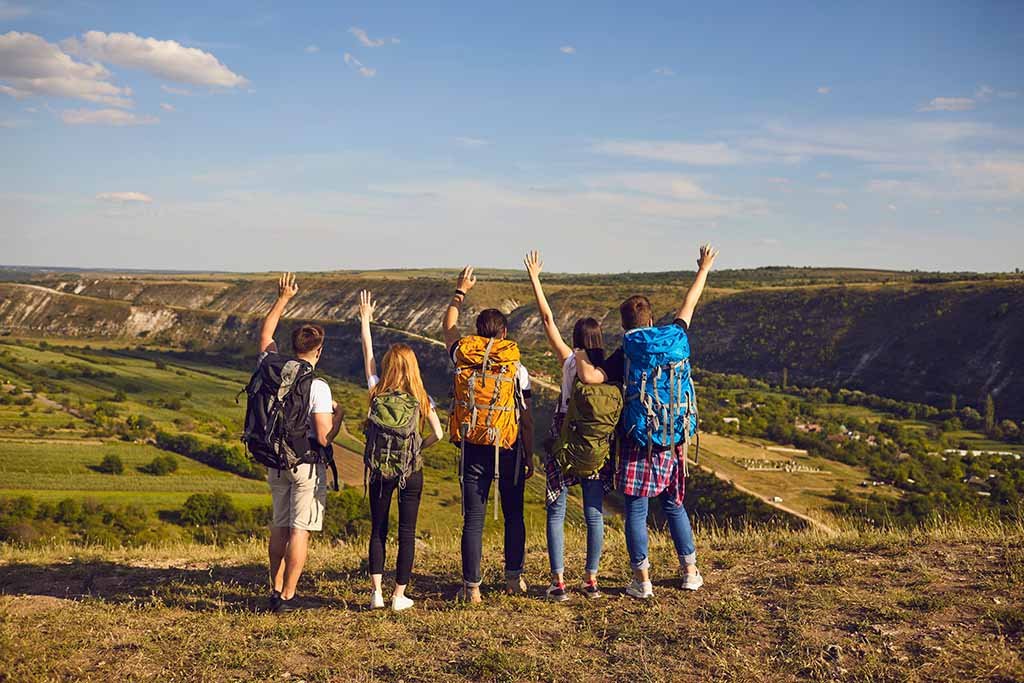Introduction
Travel has long been recognized as a profound catalyst for adventure and exploration. Stepping outside the familiar confines of daily life, travel invokes a sense of curiosity and discovery that is unparalleled in everyday experiences. By immersing oneself in different cultures, languages, and landscapes, individuals are often compelled to embrace the unknown, thereby significantly enhancing their sense of adventure.
Whether it is navigating through the bustling streets of a foreign city, trekking across untamed wilderness, or diving into the depths of marine ecosystems, each dimension of travel offers unique opportunities for personal growth and self-discovery. These journeys not only broaden one’s understanding of the world but also challenge preconceived notions, fostering a spirit of resilience and adaptability.
Moreover, travel encourages individuals to step out of their comfort zones. Engaging in unfamiliar activities, tasting exotic cuisines, and interacting with locals from diverse backgrounds, all contribute to a richer, more nuanced life experience. These adventures often lead to lasting memories and stories that inspire others to embark on their own quests for exploration.
As we delve deeper into the subsequent sections of this blog post, we will explore various aspects of travel that promote adventure. From the thrill of outdoor escapades to the subtle joys of cultural immersion, the ensuing discussion will illustrate how travel serves as a vital avenue for expanding one’s horizons and nurturing an adventurous spirit. By the end, readers will gain a comprehensive understanding of how travel can transform their approach to life’s multitudinous experiences.
Exposure to New Cultures
Traveling is not merely about visiting new places; it is an immersive experience that exposes individuals to a tapestry of cultures, traditions, and lifestyles. The adventure of stepping into a new environment is inherently tied to the excitement of exploring cultural diversity where each encounter can challenge one’s preconceived notions and broaden horizons. The mere act of navigating through local customs and ways of life unveils a world far richer than one might have previously imagined.
Participating in local customs and festivities is a cornerstone of culturally enriching travel experiences. For instance, attending the vibrant Diwali festivities in India illuminates the profound spiritual significance and communal harmony that the festival embodies. Similarly, witnessing the somber yet deeply revered Day of the Dead in Mexico provides profound insights into how different cultures perceive death and commemorate their ancestors. Such experiences not only provide thrill but also foster a deeper understanding and appreciation for global traditions.
Furthermore, cultural exposure through travel often involves challenging and redefining preconceived notions. A traveler visiting Japan might initially expect a highly traditional society but will soon discover the seamless coalescence of ancient practices with cutting-edge modernity. This juxtaposition, found in everyday life, reshapes perceptions and enables travelers to see the intricate layers that form the fabric of a society.
The impact of such culturally enriching trips is profound. Engaging with diverse cultures fosters cultural empathy and global awareness. It encourages open-mindedness and adaptability—qualities paramount in today’s interconnected world. Travelers who immerse themselves in different cultural contexts often return home with enhanced interpersonal skills and a more nuanced perspective on global issues. These experiences thus catalyze personal growth and equip travelers with the holistic cognizance needed to navigate and appreciate our diverse world.
Trying New Activities
Travel inherently presents an array of opportunities for experiencing new and exciting activities, many of which may be unavailable or unconsidered in one’s everyday environment. This exposure to novel adventures can span a broad spectrum, from extreme sports to culturally enriching ceremonies. For instance, partaking in bungee jumping in New Zealand’s scenic terrains or scuba diving off the coast of Australia not only provides an adrenaline rush but also deeper insights into unique ecosystems and geographical marvels.
Moreover, engaging in region-specific traditions or festivals often leaves travelers with unforgettable memories. The rich vibrancy of India’s Holi festival, the solemn yet enthralling experience of a Japanese tea ceremony, or the pulsating energy of Brazil’s Carnaval, all offer immersive cultural experiences that are both eye-opening and extraordinarily evocative. These activities do more than entertain; they furnish individuals with a deeper understanding and appreciation of global diversities.
Such adventurous undertakings propel individuals beyond their usual boundaries and comfort zones, engendering personal development. Whether it’s overcoming the initial fear of heights when paragliding over the Swiss Alps or the initial trepidation of tasting unfamiliar yet exotic local foods, these new experiences teach resilience, openness, and adaptability. The transformative power of embarking on these ventures fosters self-confidence and an adventurous spirit.
Furthermore, travel enables individuals to approach challenges with a fresh perspective. When faced with an unfamiliar activity, travelers are required to be adaptive, resourceful, and often rely on instinct. The problem-solving skills honed through these experiences are transferable and valuable in everyday life. Adventure travel, hence, cultivates a mindset that views unknowns not as deterrents but as opportunities.
In essence, the varied activities encountered while traveling enable a holistic form of growth—one that combines adventure with introspection. By stepping outside their regular routines and embracing the uncertainties of new activities, travelers can find both joy and self-discovery in the extraordinary. In doing so, they aptly embody the essence of adventure, constantly pushing the horizons of their own potential.
Exploring Unfamiliar Terrain
Traveling through unfamiliar terrains presents both an exhilarating opportunity and a formidable challenge for many adventurers. The essence of exploring the unknown lies in its unpredictability, whether it involves hiking through rugged landscapes, navigating through the bustling alleys of a new city, or discovering remote destinations that are far removed from the usual tourist pathways. Each of these experiences offers unique insights and moments of awe, encapsulating the spirit of adventure and discovery.
Hiking through rugged landscapes, for instance, demands physical endurance and mental fortitude. The sheer unpredictability of nature, from sudden weather changes to untamed paths, keeps hikers on their toes. Yet, the reward of cresting a steep mountain, with panoramic views stretching to the horizon, makes every step and misstep worth the effort. Enthusiasts often recount tales of traversing untouched terrains, where every new trail leads to astonishing natural beauty and a deeper connection with the wilderness.
On the other hand, navigating a new city can come with its own set of thrills. Each city, with its unique architectural marvels, cultural quirks, and hidden gems, transforms every turn and alley into a journey of discovery. The bustling streets of Tokyo, the historic alleys of Rome, or the vibrant markets of Marrakech offer endless opportunities for urban explorers. Stories abound of travelers who, by chance or curiosity, stumble upon little-known cafes, artisan workshops, or local festivals that unveil the city’s true character.
Discovering remote destinations adds another layers to the excitement. Often off the beaten path, these places offer an authentic experience unmarred by commercialization. The journey to these distant lands, be it through dense jungles, across arid deserts, or via boat trips to secluded islands, demands resilience and adaptability. Travelers who venture here return with tales of communities living in harmony with nature, unexplored ecosystems, and a renewed sense of appreciation for life’s simplicity.
Ultimately, exploring unfamiliar terrains compels individuals to step out of their comfort zones and embrace the unforeseen. It fosters a sense of awe and a spirit of adventure that enriches the travel experience, making each journey a profound encounter with the world’s diverse landscapes and cultures.
Facilitating Personal Growth
Traveling can act as an esteemed catalyst for personal development, propelling individuals toward confronting fears, overcoming a myriad of challenges, and stepping well beyond their comfort zones. By navigating unfamiliar landscapes, engaging with diverse cultures, and embracing unpredictable scenarios, travelers often experience significant personal growth. Such experiences cultivate heightened self-awareness and confidence, key components in an individual’s development journey.
Take solo adventures, for instance. Embarking on a journey alone forces travelers to rely on their resourcefulness and decision-making skills. Whether it’s finding directions in an unfamiliar city, communicating in a foreign language, or troubleshooting unexpected issues, these tasks enhance problem-solving abilities and foster a stronger sense of independence. The introspection that accompanies solo travel can also lead to profound self-discovery, allowing individuals to understand their true selves better.
Transformative journeys extend beyond solitary travel. Group expeditions, whether with friends or strangers, encourage collaborative effort and sometimes require stepping into leadership roles. Participants must navigate group dynamics and contribute collectively to overcome obstacles. This shared experience often nurtures empathy, patience, and improved interpersonal skills.
Consider someone fearful of heights who decides to hike a mountain during their travels. The deliberate confrontation and eventual conquering of this fear can serve as a powerful metaphor for overcoming even the most daunting life challenges. Such experiences instill a sense of accomplishment and resilience, reinforcing the traveler’s confidence to tackle new ventures in everyday life.
In combining encounters with varied cultures and traditions, travelers often gain a broader perspective, fostering open-mindedness and cultural appreciation. Such exposure breaks down preconceived notions and biases, promoting a more inclusive worldview. Ultimately, travel aids in constructing a more well-rounded and empathetic individual, poised to navigate the complexities of an interconnected world.
Building Connections
Travel plays a pivotal role in enabling individuals to connect with people from diverse backgrounds. One of the most enriching aspects of travel is the opportunity to meet new people, share stories, and understand different perspectives. These interactions can occur through organized cultural exchanges or the spontaneity of friendship, each contributing to a more profound appreciation of human experiences across the globe.
Organized cultural exchanges often serve as a gateway for travelers to immerse themselves in local customs and traditions. These structured programs facilitate meaningful interactions with locals, offering insights into their daily lives and cultural heritage. Such experiences can be both educational and transformative, fostering respect and empathy towards different ways of life.
Equally significant are the spontaneous friendships that develop while on the road. Whether it’s a conversation with a fellow traveler at a hostel, a shared meal with a local family, or a chance meeting on a bustling street, these unplanned connections often leave lasting impressions. They reveal the shared humanity that transcends geographical boundaries and cultural differences, cultivating a sense of global community.
These relationships, whether planned or incidental, greatly enhance the travel experience. They provide travelers with firsthand knowledge and a deeper understanding of the world. Moreover, these interactions often challenge preconceived notions, broadening one’s worldview and fostering open-mindedness.
In a broader sense, the social aspects of travel contribute to a wider understanding of human experiences. By stepping out of one’s comfort zone and engaging with individuals from various walks of life, travelers gain valuable perspectives that enrich their own lives and can be shared with their communities back home. The connections made while traveling are not just about the individuals involved but also about creating bridges between cultures, fostering unity, and promoting global harmony.
Sustaining a Sense of Adventure and Curiosity
Travel has an unparalleled ability to cultivate and maintain a profound sense of adventure and curiosity. Those who embrace travel as a regular part of their lives often find that their zest for exploration extends well beyond time spent traversing new geographies. Indeed, frequent travelers exhibit a remarkable propensity for continually seeking novelty and challenging the familiar, not only during their voyages but also in their daily routines.
Several key factors underpin this phenomenon. Firstly, travel exposes individuals to diverse cultures, lifestyles, and perspectives. Such exposure inevitably fosters a deeper curiosity about the world, prompting endless questions and a desire to seek answers. This enhanced sense of curiosity can permeate various aspects of life, encouraging lifelong learning and adaptability.
Moreover, the sense of unpredictability inherent in travel pushes individuals out of their comfort zones, building resilience and a readiness to face the unknown. This cultivated adaptability can influence how one approaches personal and professional challenges, often leading to more innovative solutions and an open-minded attitude.
To maintain this adventurous spirit when journeys are not feasible, one can incorporate several strategies. Leveraging technology, travelers can virtually explore new locations through documentaries, virtual tours, and online cultural experiences. Engaging in local adventures, such as outdoor activities or visiting nearby attractions, can also keep the flame of curiosity alive. Additionally, fostering connections with people from different backgrounds or joining cultural clubs and societies allows for continual exposure to varied experiences and perspectives.
Furthermore, avid explorers should nurture their curiosity by staying informed about global events and developments. Reading books, both fiction and nonfiction, can provide new mental landscapes to navigate. Lastly, setting personal challenges unrelated to travel, such as learning a new language or mastering a new skill, can simulate the thrill of discovery and keep the spirit of adventure vibrant.
Through these practices, the benefits travel brings—both in adventure and curiosity—can be sustained and even amplified, enriching one’s life with continuous growth and excitement.
Conclusion
Travel holds a transformative power that encourages adventure and exploration into the unknown. Throughout this blog post, we have delved into various aspects illustrating how travel is instrumental in promoting a spirit of discovery. By exposing individuals to new cultures, travel opens doors to unique perspectives and ways of life that may differ vastly from their own unearthing fresh, enriching experiences.
Engaging in novel activities and traversing unfamiliar terrains also underscores the essence of adventure. These experiences not only challenge one’s comfort zones but also ignite a sense of wonder and curiosity, making every journey an invigorating quest to discover the unknown. Through such endeavors, travelers often encounter moments that foster substantial personal growth, instilling confidence and resilience.
Moreover, the act of exploring the world cultivates global connections, bridging gaps between diverse communities and fostering mutual understanding. This aspect of travel contributes significantly towards building a more empathetic and harmonious global society. Forming meaningful relationships with people from different backgrounds further enriches one’s worldview, nurturing a deeper appreciation for the diversity that exists within humanity.
As we navigate through the myriad facets of our lives, embracing travel emerges as an essential means to broaden our horizons and enrich our existence. It encourages us to step beyond the familiar and immerse ourselves in the beauty and complexity of the unknown. By doing so, we cultivate a mindset of continual learning and open-heartedness, essential traits for leading a fulfilling and enlightened life.
Therefore, it is imperative that we recognize and seize the opportunities to travel, actively seeking out adventures that challenge and transform us. In adopting this approach, we not only amplify our potential for personal growth but also contribute positively to the global tapestry of cultures and experiences. Let us embrace the journey and the countless adventures that await in the vast, unexplored world.




